Ray Budd
Decision Aids for Adversarial Planning in Military Operations: Algorithms, Tools, and Turing-test-like Experimental Validation
Jan 22, 2016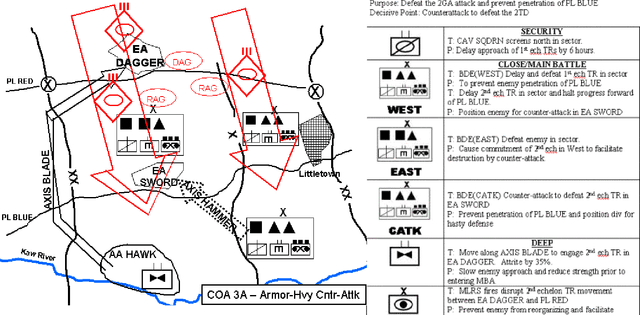
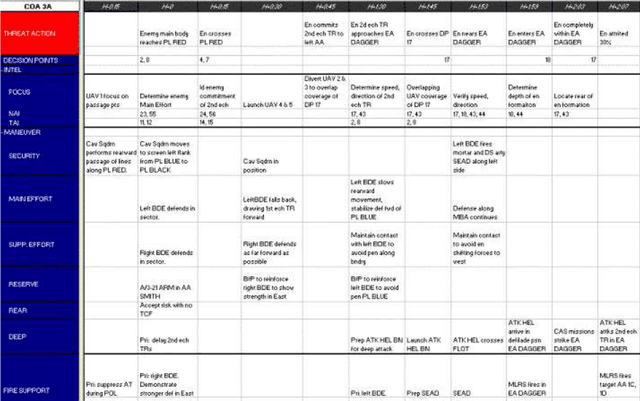
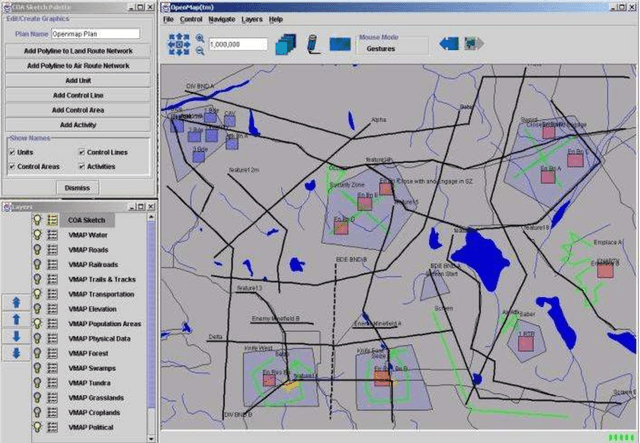
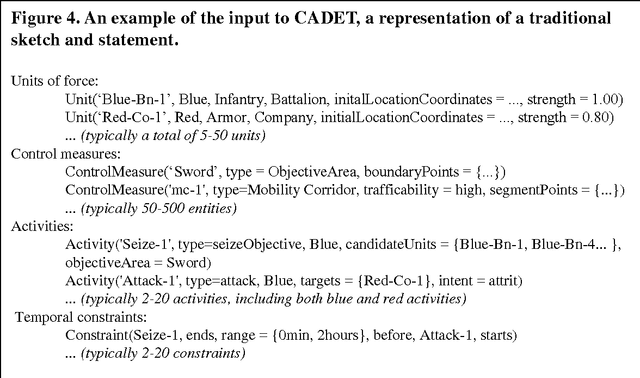
Abstract:Use of intelligent decision aids can help alleviate the challenges of planning complex operations. We describe integrated algorithms, and a tool capable of translating a high-level concept for a tactical military operation into a fully detailed, actionable plan, producing automatically (or with human guidance) plans with realistic degree of detail and of human-like quality. Tight interleaving of several algorithms -- planning, adversary estimates, scheduling, routing, attrition and consumption estimates -- comprise the computational approach of this tool. Although originally developed for Army large-unit operations, the technology is generic and also applies to a number of other domains, particularly in critical situations requiring detailed planning within a constrained period of time. In this paper, we focus particularly on the engineering tradeoffs in the design of the tool. In an experimental evaluation, reminiscent of the Turing test, the tool's performance compared favorably with human planners.
Coalition-based Planning of Military Operations: Adversarial Reasoning Algorithms in an Integrated Decision Aid
Jan 22, 2016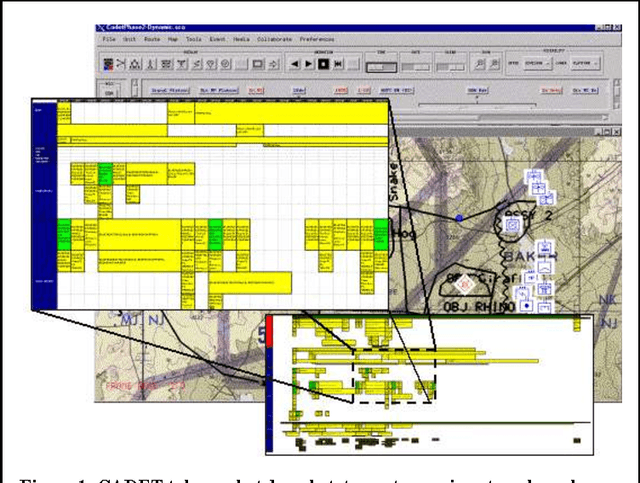
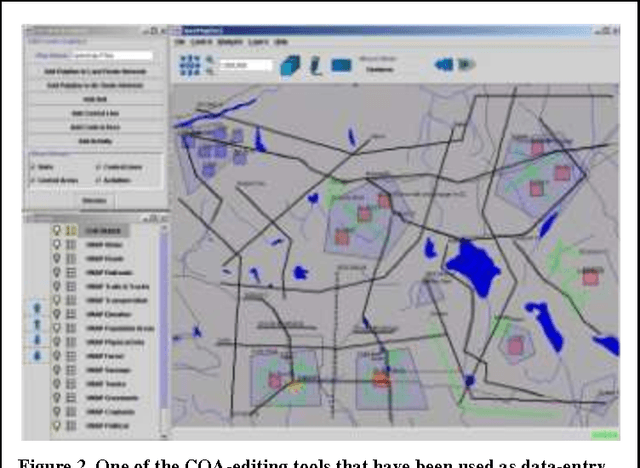
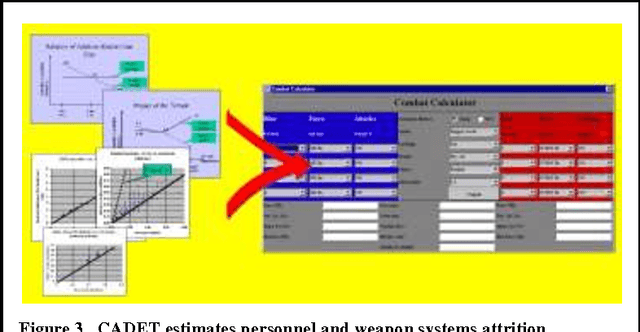
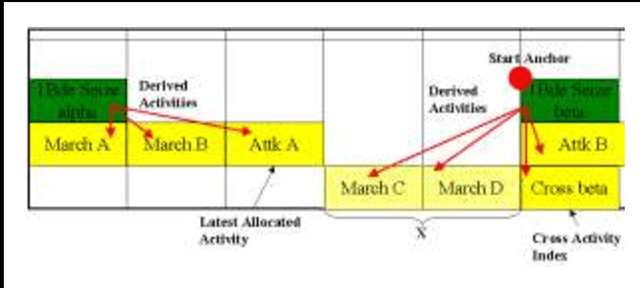
Abstract:Use of knowledge-based planning tools can help alleviate the challenges of planning a complex operation by a coalition of diverse parties in an adversarial environment. We explore these challenges and potential contributions of knowledge-based tools using as an example the CADET system, a knowledge-based tool capable of producing automatically (or with human guidance) battle plans with realistic degree of detail and complexity. In ongoing experiments, it compared favorably with human planners. Interleaved planning, scheduling, routing, attrition and consumption processes comprise the computational approach of this tool. From the coalition operations perspective, such tools offer an important aid in rapid synchronization of assets and actions of heterogeneous assets belonging to multiple organizations, potentially with distinct doctrine and rules of engagement. In this paper, we discuss the functionality of the tool, provide a brief overview of the technical approach and experimental results, and outline the potential value of such tools.
 Add to Chrome
Add to Chrome Add to Firefox
Add to Firefox Add to Edge
Add to Edge